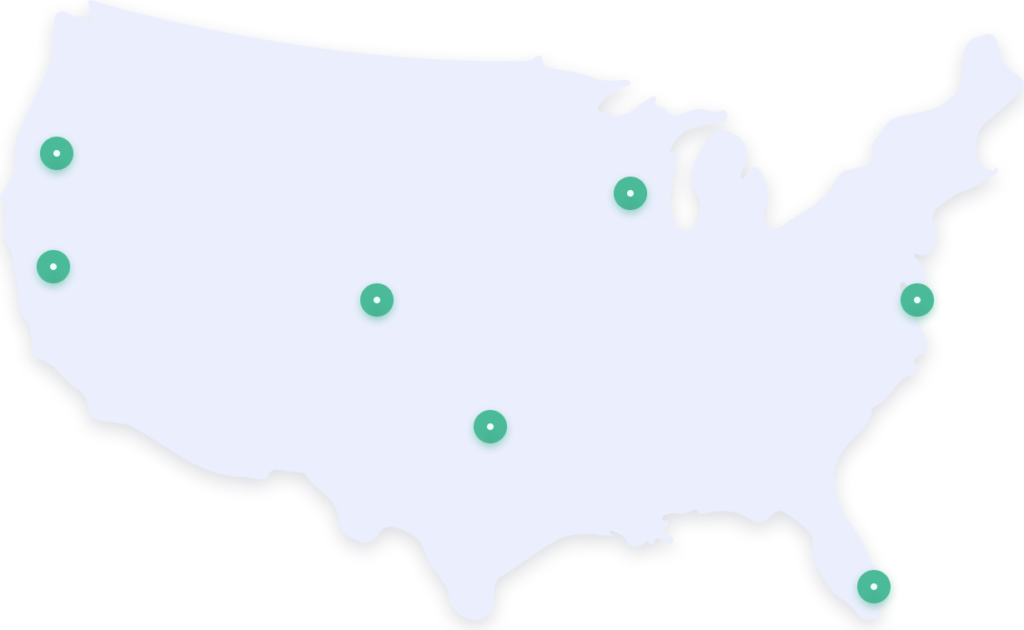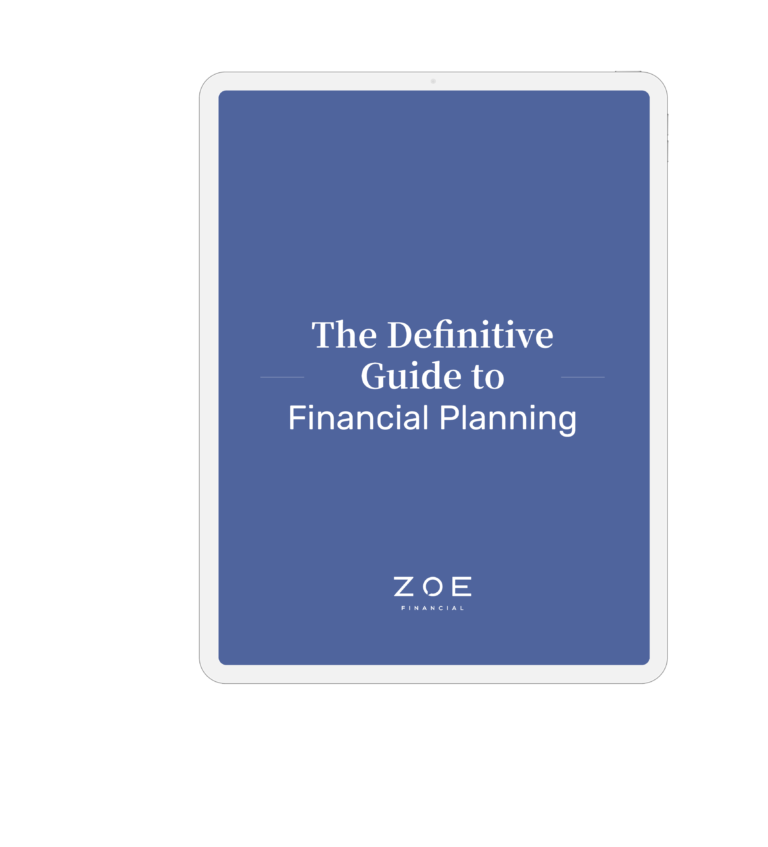Windfall & Inheritance Planning
How many times have you dreamed of finding a “money tree” in your backyard? We’d bet you’ve also dreamed about what you’d do with a windfall! Buy a vacation home? Take that trip you’ve been thinking about for years? Perhaps even start a new business?
Dreaming About A Financial Windfall?
As dreamy as it may seem, there’s actually a relatively high chance that at some point in your life you will receive some kind of financial windfall; from your company, from your parents, or even from Uncle Sam.
While most of these windfalls are unlikely to move you into the “0.1% club” it’s important to have a plan for a financial windfall. Resisting the impulse to spend it all when there might be smarter ways to use it can make a big difference in protecting your long-term financial security. That’s where an experienced financial planner can help.
Download our Guide to Financial Planning
Our Definitive Guide to Financial Planning Can Help You Plan For:
- Current & Future Windfalls
- Short and Long-Term Planning for Windfalls
- How to Maximize the Benefits of Your Windfall
What Is a Financial Windfall?
A sudden influx of cash can come about in a variety of ways: when you know how much you’ll inherit, when you’re getting ready to sell highly appreciated stock, when all of those U.S. savings bonds your relatives gave you decades ago are finally maturing.
A windfall, on the other hand, is wealth that seems to come out of the blue. There are plenty of situations in which a windfall may occur (including winning the lottery!), as well as financial challenges that may accompany them.
If you’re working for a successful and generous company, you may have opportunities to receive significant monetary benefits from the firm’s own windfall profits. These may include:
- Annual or one-time bonuses based on your performance (or your team’s performance).
- Profit-sharing contributions to your 401(k) plan.
- Stock options that could be worth six figures or more when exercised.
- Private shares of little value now may eventually be worth a great deal if your company is acquired or goes public in an IPO.
Some of these windfalls have unanticipated tax consequences. For example, annual bonuses might move you into a higher income tax bracket, which could turn your annual refund into an amount due. Or when you exercise and sell stock options, you may need to pay capital gains taxes depending on how long you hold them. A financial advisor can help you figure out how to manage the tax implications of these work-related windfalls and offer solutions for intelligently investing some of your money or using it to reduce your debts.
There’s nothing more satisfying than finding out you’re owed a refund by your state and Uncle Sam. While this may seem like free money, it could really be an illusory financial windfall. Why? Most people receive tax refunds because they’re able to itemize tax deductions (which the new tax laws have made more difficult for most people to do) or, more likely, because too much tax was withheld from their paycheck.
If your withholding rate is too high, it means the government is taking more money from you than you should be paying. That excess money may sit in the government coffers for a year or more before you get it back. Imagine how much better off you might be if you could lower your withholding rate and invest that money or pay off debt!
A financial advisor can help you calculate a withholding rate that in combination with all your other sources of income and the tax-reducing benefits of retirement plan contributions, may result in a “zero-refund, zero taxes due” scenario. This can ensure you never part with money that’s yours to begin with.
Of course, not all financial windfalls mark celebratory events. An inheritance is one of them.
While you probably already know you’ll inherit money or assets when one or both of your parents pass on, you may not know exactly what you’ll receive until their will is read. And you may be in for a surprise!
You might have been under the impression that Mom and Dad weren’t wealthy because they lived frugally and never moved out of the tiny house you grew up in. But instead of spending money on themselves, they may have invested it to build a million-dollar legacy for you and your siblings. Or they may have set up a trust with you as a beneficiary and never told you about it.
In the same vein their tiny house might actually be worth far more than you think because of its high priced location, or all those Hummel figurines they collected over the years might be worth a small fortune now!
Regardless of the situation, many of your parents’ assets might be tied up in probate for a long time. This could mean that it’s worth far less than you thought after the lawyers, accountants, auctioneers, real estate brokers, and local courts take their share. And while the new laws mean that 99% of estates aren’t large enough to be subject to federal estate taxes, your state may have different rules.
In addition, wealth you receive in forms other than cash may carry undesired tax consequences. For example, if you inherit stock owned by your parents, the purchase price of the shares will be adjusted to their fair market value on the day your surviving parent passed. If the price rises significantly, you may have to pay short-term or long-term capital gains taxes when you sell.
A financial advisor who specializes in estate-planning-related issues can help you sort through these complicated, and emotional, issues and provide solutions to help you preserve and grow your inherited wealth.
What Would You Like To Do With Your Financial Windfall?
Learn how to best manage a windfall.
Other Financial Windfalls
Like inheritances, some windfalls are accompanied by sorrow, tension, and pain. These may include:
Cash or assets received from a divorce settlement
Life insurance payouts resulting from the death of your spouse or partner. Legal awards you receive as a plaintiff for winning or settling a lawsuit against another person, professional, or company. In these cases, the events that led to the windfall may have left you in a physically and emotionally precarious situation. While a financial advisor can’t promise to heal your wounds, they can help you figure out the best way to manage your windfall and get you on the path to recovery.
Lottery victory
The chances of you becoming the next Powerball winner are infinitesimal. But they’re not zero. If you do win the lottery, you’ll want to consider many issues before you cash in your ticket, such as:
Do I Need A Wealth Planner For My Windfall?
Financial windfalls can come from both fortuitous and tragic circumstances. But regardless of their origins, they can be life-altering. Should you be on the receiving end of one, partnering with a financial advisor can help you feel confident in knowing that you’re making the most of these unexpected events.
Disclosure: This page is not investment advice and should not be relied on for such advice or as a substitute for consultation with professional accounting, tax, legal or financial advisors. The observations of industry trends should not be read as recommendations for stocks or sectors.
A Wealth Planner With Expertise in Windfall & Inheritance Planning
Connect with fiduciary financial advisors.
Trustworthy
Nationwide
Experienced




A Wealth Planner With Expertise in Windfall & Inheritance Planning
Connect with fiduciary financial advisors.
Trustworthy
Experienced
Nationwide




Ready to Grow
Your Wealth?
Let us connect you with the most qualified wealth planners
Ready to Grow Your Wealth?
Let us connect you with the most qualified wealth planners
